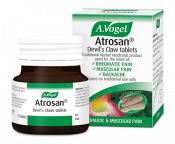An introduction to osteoporosis
Osteoporosis is a well-known condition that weakens the bones. This makes them frail and so breakages can easily occur. Although breakages can occur all over the body, they are most common on the wrists, hips and spine.
Symptoms of osteoporosis
Osteoporosis can go undetected for years because, other than bone breakages, there are no noticeable symptoms. That being said, many people live with long-term chronic pain when the source of the problem is actually a broken bone caused by osteoporosis.
Osteoporosis risk factors
As we age we naturally lose bone density however, for some this process happens quicker than normal and as a result osteoporosis can occur.
On top of this, there are number of things that increase the risk of developing the condition.
Menopause – in the first few years of menopause women can lose bone rapidly as a result of falling oestrogen levels and so they are more at risk of osteoporosis than men.
Use of corticosteroids – these are often used to treat arthritis and asthma but it is thought that taking a high dose regularly could affect bone strength.
Low body weight – this means there is less bone tissue throughout the body and so again, breakages can become more frequent. Also, if you have less body fat then you will be unable to cushion a fall and fractures as a result of osteoporosis become more common.
Thyroid conditions – a wobbly thyroid or parathyroid can affect the amount of calcium in the blood and bone. Calcitonin, which is excreted by the thyroid gland, increases the rate of calcium absorption in the bone and so any disruption to the production of this can contribute to osteoporosis.
Smoking – research shows that smoking can reduce bone density but on top of this, people who smoke tend to have a lower overall body weight which, as we now know, is another risk factor for osteoporosis.1
Calcium deficiency – this can again contribute to osteoporosis but the problem is unlikely to occur unless you have an eating disorder or a large number of allergies that restrict your diet.
Alcohol – regularly drinking more than the recommended amount of alcohol can affect the cells that build and break down bone however, it can also disrupt the balance of calcium which, as I’m sure you are aware, is essential for good bone health.
Vitamin D or magnesium deficiency – this can affect the body’s ability to absorb calcium and so again, there is more chance that osteoporosis will develop.
Family history – although there is no clear reason as to why this case, if your parents have had osteoporosis there is more chance that you’ll develop the condition too.
High levels of acidity in the bloodstream – this is caused by eating a high intake of animal protein, having a high caffeine intake and/or eating lots of refined, highly processed foods.
Medication – certain prescriptions for breast cancer and prostate cancer can increase the risk of osteoporosis.
Who gets osteoporosis?
This condition is most common in those over the age of 75 because the bones lose strength as we get older. However, the elderly are also more prone to falls and so the two things together mean breakages are more likely to occur.
Women are also more prone to osteoporosis because they have smaller bones than men. On top of this they tend to live longer than men and, since osteoporosis is more common amongst the older age group, more women suffer from the problem.
Treatment of osteoporosis
Although most cases of osteoporosis aren’t diagnosed until a breakage occurs, a doctor can order a bone density scan to work out if you have the condition or not. After this there are a range of medications that can be used to help manage the condition, though things like your age and bone density will determine what these are.
What else can you do?
Vegetarian and vegan diets are associated with a lower risk of osteoporosis so this may be one way to reduce the chances of the condition developing. However, for those unwilling to give up meat completely, you could just reduce your intake of animal protein and refined, highly processed foods instead.
Lots of sugar causes more calcium to be secreted through the urine so it can be beneficial for your bones to reduce the amount of refined sugar you eat. Also, as was discussed, alcohol and smoking are both risk factors for osteoporosis so it can help to reduce your intake of these things.
In this country it is likely that calcium intake is quite adequate but that it is not being absorbed well due to poor magnesium levels or high blood acidity. A magnesium supplement is therefore very important.
Magnesium contributes to the absorption of calcium but it also helps convert vitamin D to its most active form and since vitamin D is good for the bones, this also reduces the likelihood that osteoporosis will develop. A liquid supplement is more easily absorbed than those in tablet for so if you want to up your magnesium intake, this is the kind of product to try.
Physical exercise is also very important for maintaining healthy bones and it doesn’t have to be anything too strenuous either – just 20-30 minutes of walking daily is a good place to start!
Finally, calcium carbonate is one of the least soluble forms of calcium whilst citrate or gluconate are two of the best. Therefore, to increase the amount of calcium being absorbed by the bones, you may find it beneficial to try our remedy Urticalcin. This is made with calcium, sodium salts and silicea but also contains extracts of freshly harvested nettle to help you absorb the calcium better.
1 https://www.bmj.com/content/315/7112/841.abstract
2 Ellis F et al. Am. J. Clin. Nutr., 1972, 25, pp 55-8








